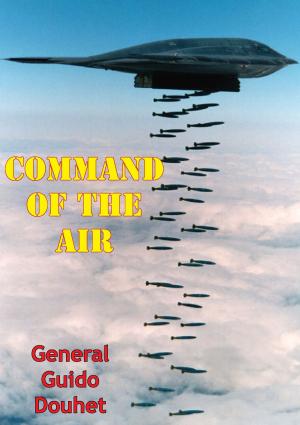ARCHIE, FLAK, AAA, And SAM: A Short Operational History Of Ground-Based Air Defense [Illustrated Edition]
Nonfiction, History, Middle East, Persian Gulf War, Military| Author: | Dr. Kenneth P. Werrell | ISBN: | 9781786253712 |
| Publisher: | Tannenberg Publishing | Publication: | November 6, 2015 |
| Imprint: | Tannenberg Publishing | Language: | English |
| Author: | Dr. Kenneth P. Werrell |
| ISBN: | 9781786253712 |
| Publisher: | Tannenberg Publishing |
| Publication: | November 6, 2015 |
| Imprint: | Tannenberg Publishing |
| Language: | English |
Includes over 90 illustrations
‘Dr Kenneth Werrell’s history of ground-based air defense performs an important service both to scholarship and, more important, to the defense of our nation’s freedom. It is perhaps human nature that we tend over time to lose sight of the lessons of the past, especially when they do not conform to certain cherished preconceptions of ours. That such myopia can be dangerous, if not downright disastrous, Doctor Werrell’s study richly illustrates. Without sentimentalism, he chronicles a pattern of lessons learned and too quickly forgotten, as the marvel of air power was reminded again and again of its limitations and vulnerability. In Korea and in Vietnam, the American people were stripped of their illusions of national and technical omnipotence. The unhappy outcome of those two conflicts were doubly lamentable because the lessons of World War II were—or should have been—fresh in our minds. In that world war, as Doctor Werrell shows, relatively cheap ground-based air defense did make a difference: at Ploesti, at Antwerp, and at the Rhine bridges.
Includes over 90 illustrations
‘Dr Kenneth Werrell’s history of ground-based air defense performs an important service both to scholarship and, more important, to the defense of our nation’s freedom. It is perhaps human nature that we tend over time to lose sight of the lessons of the past, especially when they do not conform to certain cherished preconceptions of ours. That such myopia can be dangerous, if not downright disastrous, Doctor Werrell’s study richly illustrates. Without sentimentalism, he chronicles a pattern of lessons learned and too quickly forgotten, as the marvel of air power was reminded again and again of its limitations and vulnerability. In Korea and in Vietnam, the American people were stripped of their illusions of national and technical omnipotence. The unhappy outcome of those two conflicts were doubly lamentable because the lessons of World War II were—or should have been—fresh in our minds. In that world war, as Doctor Werrell shows, relatively cheap ground-based air defense did make a difference: at Ploesti, at Antwerp, and at the Rhine bridges.
![Cover of the book ARCHIE, FLAK, AAA, And SAM: A Short Operational History Of Ground-Based Air Defense [Illustrated Edition] by Dr. Kenneth P. Werrell, Tannenberg Publishing](https://www.kuoky.com/images/2015/november/500x500/9781786253712-TMbs_500x.jpg)



![Cover of the book Russian-Soviet Unconventional Wars in the Caucasus, Central Asia, and Afghanistan [Illustrated Edition] by Dr. Kenneth P. Werrell](https://www.kuoky.com/images/2015/november/300x300/9781782899655-UNi2_300x.jpg)
![Cover of the book American Airpower Comes Of Age—General Henry H. “Hap” Arnold’s World War II Diaries Vol. II [Illustrated Edition] by Dr. Kenneth P. Werrell](https://www.kuoky.com/images/2015/november/300x300/9781786251527-cvaI_300x.jpg)



![Cover of the book A House In Bali [Illustrated Edition] by Dr. Kenneth P. Werrell](https://www.kuoky.com/images/2015/november/300x300/9781786256232-Jvnm_300x.jpg)

![Cover of the book Vanguard Of Valor : Small Unit Actions In Afghanistan Vol. I [Illustrated Edition] by Dr. Kenneth P. Werrell](https://www.kuoky.com/images/2014/august/300x300/9781782894957-aWmw_300x.jpg)
![Cover of the book The Soviet Airborne Experience [Illustrated Edition] by Dr. Kenneth P. Werrell](https://www.kuoky.com/images/2015/november/300x300/9781786250452-dBgd_300x.jpg)


